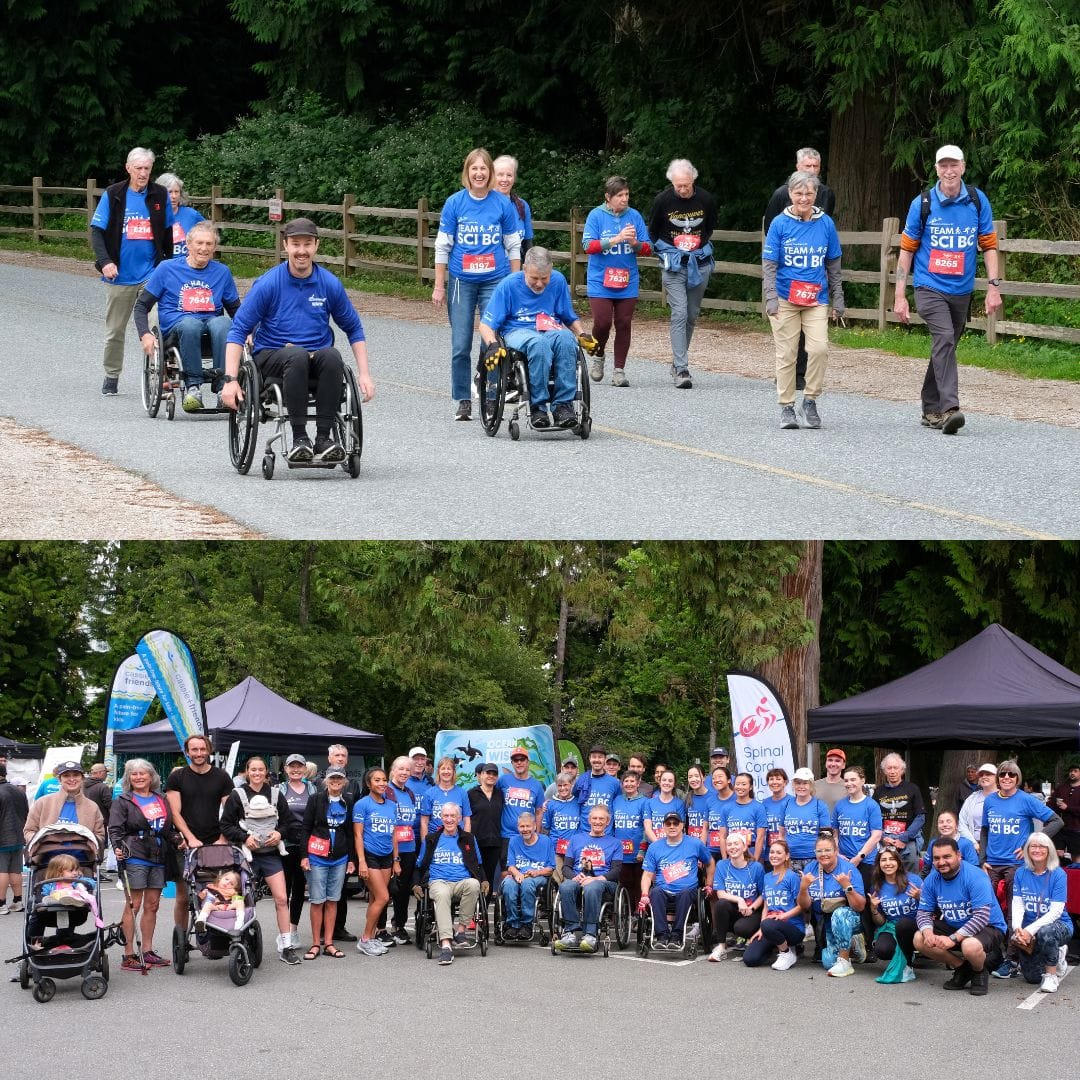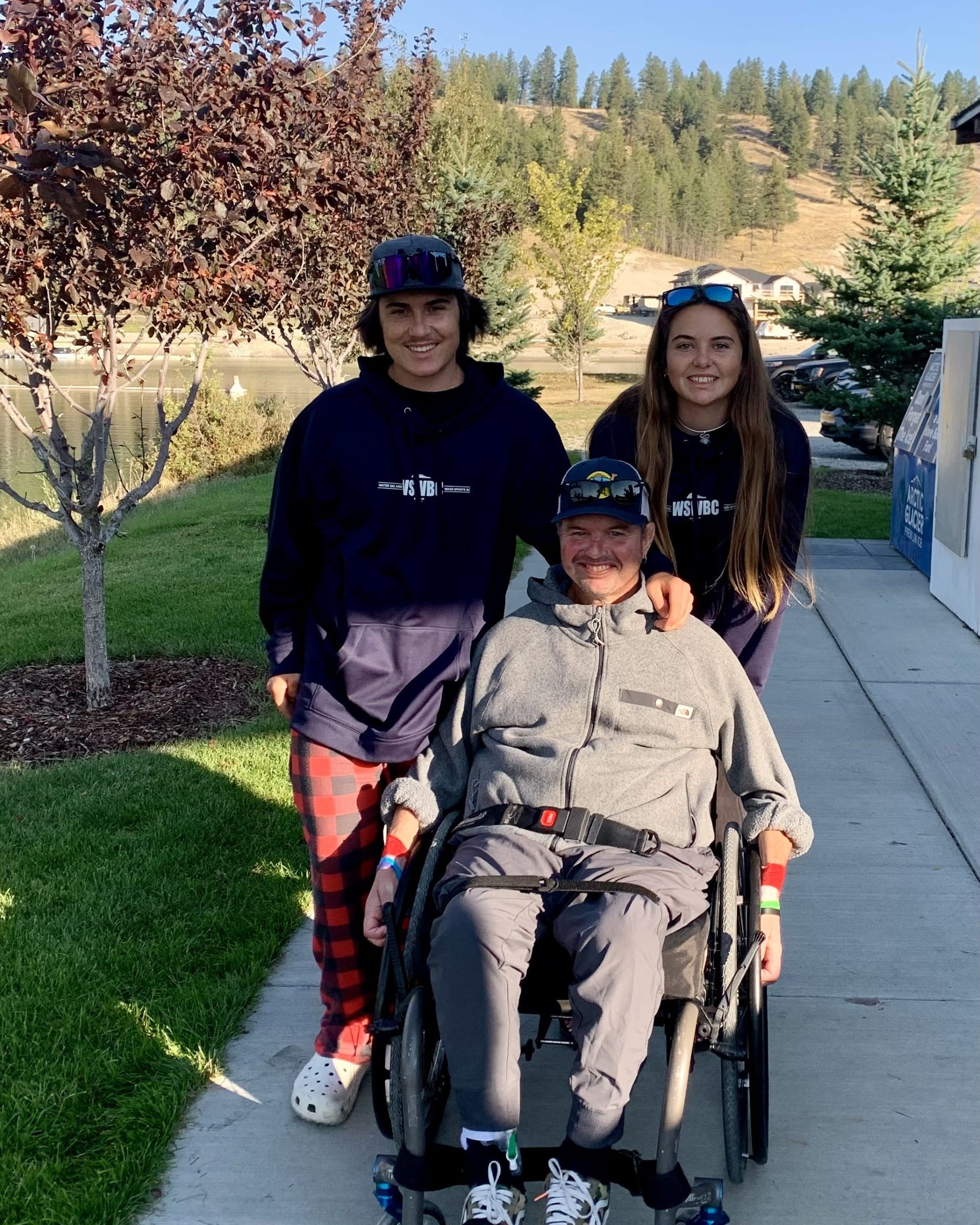After a fellow transgender Peer shared her powerful story in our last issue of The Spin, another of our members was inspired to wheel out of the shadows and finally come out to the SCI community.

Trevor Flynn had come a long way. But when the 32 year old read Taylor Straw’s story in the 2016 Winter issue of The Spin, he knew he could go a bit further.
“It was cool because I always kind of felt like I was the only trans person who is part of Spinal Cord Injury BC, ” says Flynn. “That was another reason I didn’t want to come out. Because it’s like: Will I still be included? Are people going to see me in the same light? Or am I going to be the transgender poster boy?”
Though he’s been living as a trans man for nearly nine years, Flynn hasn’t found most organizations to be as openly inclusive around such a taboo subject—let alone to publish a magazine article and blog post about a transgender community member, share it proudly with the public, and still include the individual in question.
“When I read the article, I was like, Holy crap, these are spaces that I can actually come out in and they’re going to be safe spaces,” says Flynn. “And then I had a split moment thinking, Damn, I should have been the first! I’ve been with these guys for like four and a half years, why didn’t I come out sooner? I knew that not everybody knew, so I knew it was going to be quite a shock to people. But I knew it was time, and a safe place, and so I thought, Why not do it with the organization that just accepted me as me, whether they knew it or not?”
Flynn is open about his experience—the only thing that is off the table is his childhood name. And his story is, in many ways, similar to Taylor’s, with a few notable differences: Flynn underwent a female-to-male transition, and he did so before meeting a partner, starting a family, or sustaining an SCI.
As an able-bodied child living with spina bifida, Flynn first realized he was different when he was around five years old. At the time an only child, Flynn enjoyed playing with his boy cousins. And though he had always wondered why his mom clothed him in dresses, before starting school he simply assumed he was a boy, too.

Before going under the knife, Flynn had written his family a sort of “coming out” letter. “At the end of the letter, I said, this is nobody’s fault,” says Flynn. “This has nothing to do with how my childhood was… this has nothing to do with how you treated me. Please don’t think you did something wrong. The best thing you can do right now is just support me, whether you agree with it or not.”His dad was quiet on the subject, but respectfully switched to the appropriate pronouns. His grandmother checked in from time to time, making sure her granddaughter was still feeling like a man. And his mom, though supportive of Flynn, hated the thought of yet another surgery for her son, who was born with spina bifida—and who was born a daughter.
“She’ll still mess up pronouns or call me by his birth name,” says Flynn, noting that his mom tries to be more careful when other people are around. “She lost a daughter. So I think the thing I try to tell other trans people is that people have to mourn and they do have a right to be upset about it.”
By 2012, Flynn had relocated to Vancouver, found friends and a job and, now passing as a male, neatly stored his past female life back in the closet. That same year, he went into hospital for a standard surgery — and awoke from the surgery unable to move his legs. Suddenly, the doctors were talking about full-body examinations and Flynn, who knew they’d find scars under his nipples and wouldn’t find what they were expecting down below, felt the burden of coming out all over again.
But neither his doctors nor his rehabilitation staff were disconcerted. “GF [Strong] was so respectful, they never brought it up they never made a big deal about it,” says Flynn. “All the nurses knew about it, but it was never an issue. They never screwed up pronouns, that was always respected.”
“But the second floor at GF is a pretty special place. It’s not your average place. It doesn’t matter what you have going on, they don’t judge. There’s no discrimination. We had drug users when I was there, and they weren’t treated any differently, because you’re there for the same reason: to get the most out of life that you still can.”
Before his injury, Flynn had passed as a man in his day-to-day life. Now, with dressing, bathing and bathroom business out of his control, he found himself experiencing body dysphoria all over again. The experience left him feeling exposed, and he was glad to regain control over his personal care routine and to re-enter back into the closet.

“Being in a chair, when it first happens, everyone thinks, I can’t live like this” says Flynn. “But once I got established with [SCI BC], and [they] introduced me to sports, and I started playing basketball… The chair is no big deal anymore… if I never get out of the chair, I never get out of the chair.”
“Just going to SCI BC functions, going to sports, I finally realized that prior to my injury, I didn’t actually accept myself for being transgendered,” says Flynn, who was surprised to find himself feeling more at home within the SCI community than he had ever felt in Vancouver’s queer circles.
“I felt accepted, which was strange, because even in groups where I fully came out to people, I never really felt accepted,” says Flynn. “But I found that my calling, and where I felt most at home was in the spinal cord community, between SCI BC, and BC Wheelchair Basketball, and BC Wheelchair Sports. That’s where I’ve built my chosen family.”
Now that he’s found his support network and joined a family who welcomes him as he is, Flynn feels it’s finally time for him to start coming out to them, too. “It’s like the one last thing about myself that is a really big part of me that I’m hiding from people. And if these people are my close friends, like I think they are, they’re still going to be there after I tell them.”
For Flynn, it’s the last step to acceptance—of his own situation, and from a community that means the world to him. Still, he admits he’s nervous.
“I really hope it doesn’t change anything, because I’m still the same person,” Flynn says. “The only difference might be that this might make me more confident and maybe I might be able to be a better peer mentor to somebody as opposed to hiding behind something.”
“That’s why I’m doing this article. There might be one person that picks up this magazine in our community who’s been thinking about transitioning, and now sees that it’s okay to transition in this community, too.”
This story first appeared in SCI BC’s 2017 Spring issue of The Spin magazine.
Would you like to share your story? Would you like to connect to someone in similar circumstances? Email thespin@sci-bc.ca



